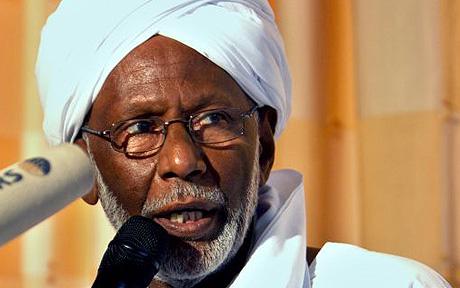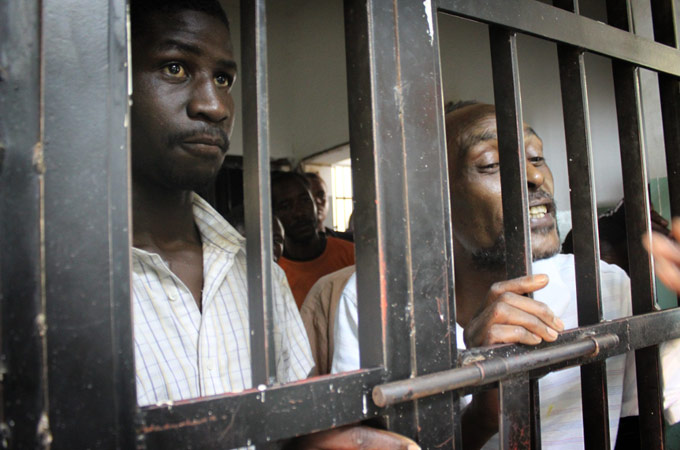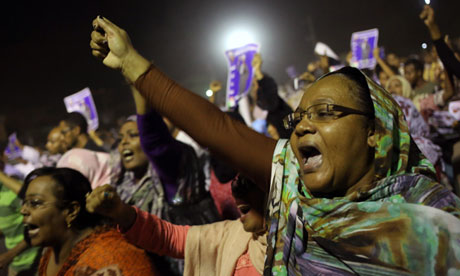By Erica Smith
Impunity Watch Reporter, Africa
KHARTOUM, Sudan — The leader of Sudan’s opposition Popular Congress Party (PCP), Hassan Al-Turabi has issued a warning against the outbreak of civil war as a result of the recent protests and turmoil that have rocked Sudan in recent days.

Al-Turabi also called for President Omer Hassan Al-Bashir to peacefully step down. Al-Turabi told Sky News TV’s Arabic service that he hope the regime hands over power before people resort to arms and that the regime could no longer sustain power through tyrannical means.
Al-Turabi, who would like to see Islam incorporated into the Sudanese constitution, also called on opposition leaders to work together to create a transitional government and constitution.
Last week, clashes erupted between demonstrators and security forces throughout the country after the government’s removal of fuel subsidies. At least 33 deaths were officially recorded and but activists and opposition sources believe the number of causalities to be as high as 150.
Sudanese authorities have arrested up to 700 people as a result of the protests but have denied using live ammunition on protestors.
Britain has called on the Sudanese government to solve the current conflict through national dialog. “I hope that the answer is that these protests will be a warning to everyone including the government that the situation needs to be addressed,” Simon Fraser, permanent undersecretary in the British Foreign Office, told reporters during a visit to Khartoum.
“It would be a very good outcome if they were to lead, although tragic in themselves, and unacceptable, if this was to lead to an acceleration of a genuine process for comprehensive national dialogue,” he said.
For more information, please see:
World Bulletin — Sudan protesters call for ‘fall of regime’ — 4 October 2013
Atlanta Black Star — Sudan’s Opposition Calls on Bashir to Step Down — 3 October 2013
Sudan Tribune — Sudan’s Turabi warns of civil war and calls on Bashir to step down — 3 October 2013
Yahoo News — Sudan unrest a warning to government to seek dialogue: Britain — 3 October 2013



